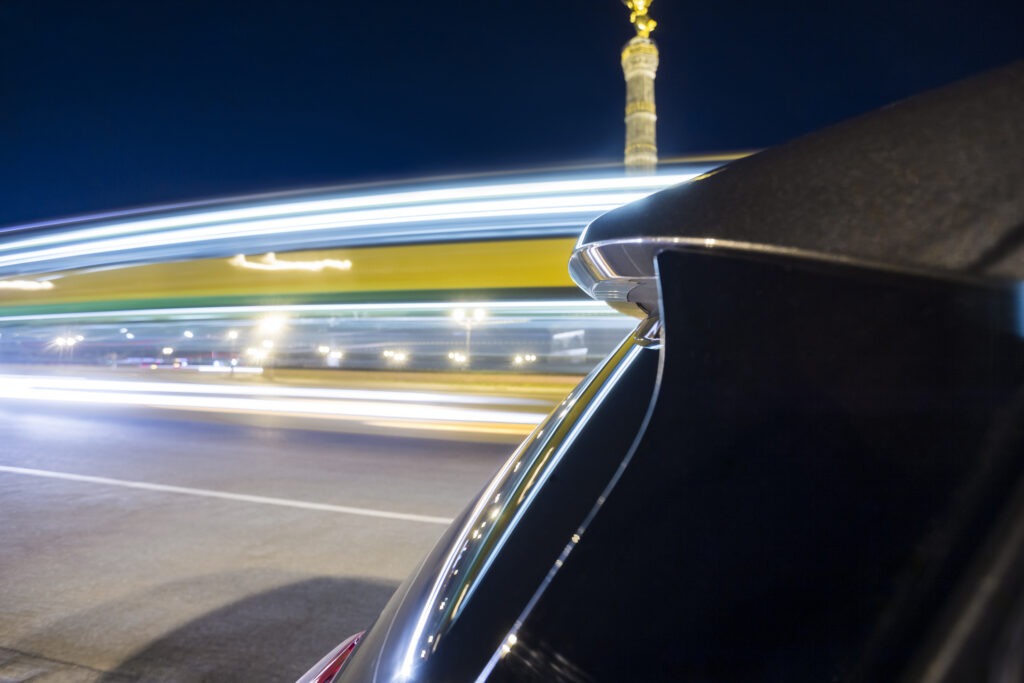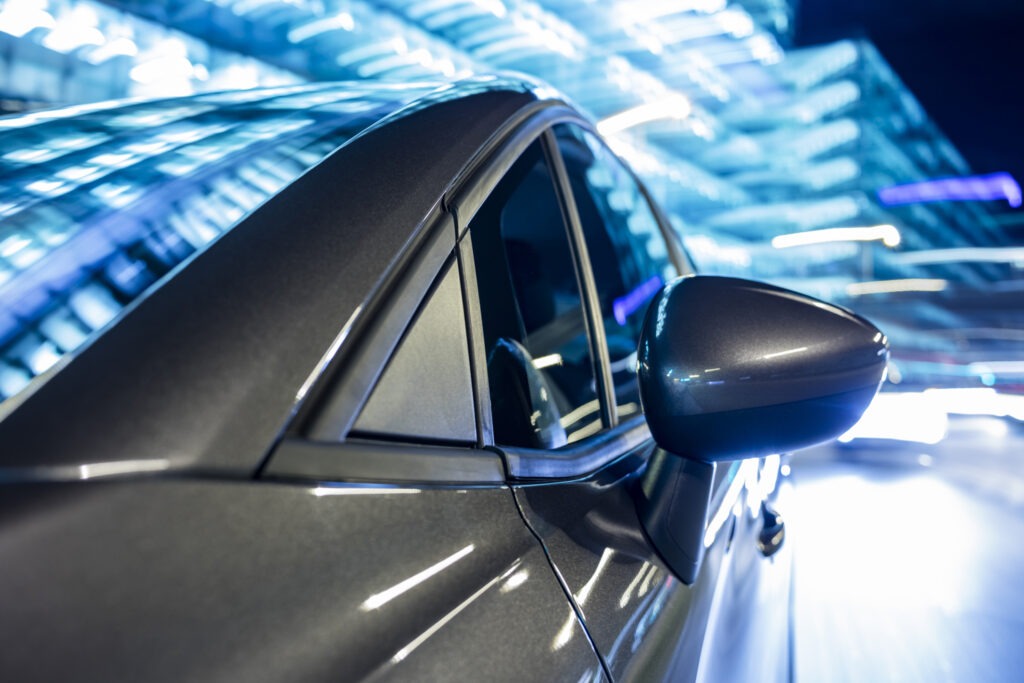BEVs take hold in the Netherlands during September
01 November 2023

A strong month for the Netherlands’ electric-vehicle (EV) market in September suggests the country’s transition to zero-emission motoring is continuing to pick up pace. José Pontes, data director at EV-volumes.com, examines the numbers.
Combined, battery-electric vehicles (BEVs) and plug-in hybrids (PHEVs) accounted for 47% of the Netherlands’ new-car market in September. Highlighting just how well buyers are adapting to the technology, 34% of the overall market came from BEV registrations.
In total, 13,916 EVs were registered in the month, with the overall Dutch market improving by 17% year on year, with 29,855 units delivered. The strong plug-in performance was helped by BEV powertrains, which represented 72% of all plug-in registrations.
Between January and September, EVs held a 43% market share, helped by their strong performance in September. Some 69% of the plug-in market was made up of all-electric models, revealing the ongoing adoption of the technology by both fleet and private buyers.
With the uptake of EVs improving, the final share in 2023 could be around 47%, meaning the Netherlands may finish its transition to EVs before the end of the decade.
EV models take hold
Tesla not only led the EV market in the Netherlands during September, but it also took the top spot in the overall market. The Model Y picked up 1,784 registrations, almost double those of the second-placed VW Polo. In the overall top five, only two models, the Polo, and the Kia Picanto in fourth, did not have any plug-in variant.
This suggests that while the EV transition is well advanced in the upper half of the market, the lower portion still has some way to go. Affordable all-electric city cars will help boost the country’s EV adoption.
Below Tesla, the Volvo XC40 returned to form, following a period of slow growth. Of the model’s total 673 registrations, 597 were BEVs. In third place was the Kia Niro, which achieved its best monthly score since the launch of the new generation. In total, the Niro registered 603 units in September, of which 583 were BEVs.
Peugeot had a strong month, with the 208 EV in fourth place, thanks to 523 registrations, while the 2008 EV scored its best result since December 2021, with 397 deliveries. Elsewhere in the Stellantis stable, the Jeep Avenger recorded its best month to date in the Netherlands, with the new model securing 12th spot thanks to 259 registrations, confirming a growing trend. The Opel Corsa EV also appeared in the charts, with 196 units delivered, putting it in 18th place.
Another highlight of the month came from BMW, with the carmaker’s iX1 model breaking its record for registrations in a month, with 381 units. With the i4 taking 15th place (213 units) and the iX3 at the bottom of the table (184 units), BMW was the only manufacturer to have three models in the top 20, confirming the brand's popularity in the region.
MG also saw good results, with the ZS EV returning to the top 20 for the first time since June, its tally of 262 registrations allowing it to take 11th place. The MG4 was three places higher in eighth, thanks to 376 deliveries. This put the model comfortably ahead of its category rival, the VW ID.3, which only gained 272 registrations in September, taking 10th. However, both were some ways behind the Peugeot 208.
Outside the top 20, the highlights came from Mercedes-Benz. The EQB scored a record 126 registrations, while its slightly smaller sibling, the EQA, had its best result since 2021, with 138 deliveries. The Hyundai Kona EV also performed well, thanks to the first units of the new generation coming to the market. Its 128 registrations tally is a strong result in this early phase, and it should return to the table soon.
Mixed results for Tesla
In the first nine months of the year, the Tesla Model Y recorded almost double the registrations of the second-place model, meaning its position at the top is likely to remain secure until the end of the year. The company benefitted from its regular end-of-quarter boost in September, helping it take a commanding lead, thanks to 10,301 deliveries.
The Volvo XC40 built on its strong month to take second place from its Geely cousin, the Lynk & Co 01. Only 61 units separated the two models, but the Chinese-made compact crossover has seen a slowdown in its popularity. In September, the PHEV model only placed 16th, with the Volvo XC40 beating it by 463 models. If this trend continues, Volvo is likely to hold on to the runner-up spot until the end of the year.
However, there may be competition from two models that have seen recent revamps, which may build their popularity from October onwards. The Peugeot e-208 is the closest competitor at present, occupying fourth place in the year-to-date table with 4,886 units. This is just 962 registrations behind the Lynk & Co 01, and 1,023 behind the Volvo XC40.
Meanwhile, the Tesla Model 3, currently in eighth, may also be a contender. While the model did not place in the top 20 during September, deliveries of the refreshed version are starting soon, and December could see a big jump in registration figures, based on the US company’s quarterly operations.
The Tesla Model 3’s disappearance from the September top 20 table allowed the Kia Niro and the Ford Kuga PHEV to overtake it in the year-to-date figures. The Ford Kuga was the leading PHEV model in September and now sits just 72 units ahead of the Tesla in seventh. However, deliveries of the refreshed Model 3 will likely address this slip down the table in the coming months.
In the second half of the top 20 chart, there were several position changes. Thanks to its strong month, the Peugeot e-2008 climbed from 14th to 13th place. The small crossover switched places with the BMW i4, which now has its sibling the iX1 just seven units behind. The popular electric crossover rose one position in September, to 15th, and could surpass its bigger stablemate in October, becoming the best-selling premium model on the table.
Elsewhere, the Audi Q4 e-Tron climbed one position and now sits in 17th with 2,042 registrations across the first nine months of 2023, while the MG4 also climbed one spot, to sit in 19th place.
Brand performances benefit
In the brand rankings, leader Tesla (11.3%, up from 11.1%) remained strong, but below it, BMW (8.4%, up from 8.3%) surpassed Volvo (8.3%) in September and became the new runner-up.
The Swedish brand lost more than 1% of its market share in previous months, having held 9.4% in June, it has now paid the price, with the German carmaker jumping ahead. This may be a result of customers waiting for the highly anticipated new EX30 model, meaning sales of its existing line-up are slowing.
Meanwhile, Peugeot (7.1%, up from 7%) benefitted from good performances from its 208 and 2008 models to increase the distance to fifth-place Volkswagen (6.7%).
While Tesla led the way across most of the market, the power of OEMs, with brands grouped under their parent companies, highlights the strengths of combined forces in the Dutch automotive market.
In this respect, Stellantis was out in front, with a 16.4% share of the EV market. While Peugeot and Jeep both performed well in September, Opel had a slower month, which negated the work of the others and meant the group failed to increase its market share.
VW Group also remained stable with a 15.4% share, thanks to Skoda’s performance in the month, which made up for a slower-than-usual Volkswagen brand performance.
Geely–Volvo continued its steep descent, having dropped from 14.8% in August to its current 14.4%. While Volvo has been responsible for declines in recent months, this time Polestar and Lynk & Co both struggled in September, with the carmaker likely suffering as buyers switch from PHEVs to BEVs.
Finally, single-brand Tesla held fourth (11.3%, up from 11.1%), distancing itself a little from Hyundai Motor Group, which nevertheless had a positive month, with 11.1% of the Dutch EV market.



